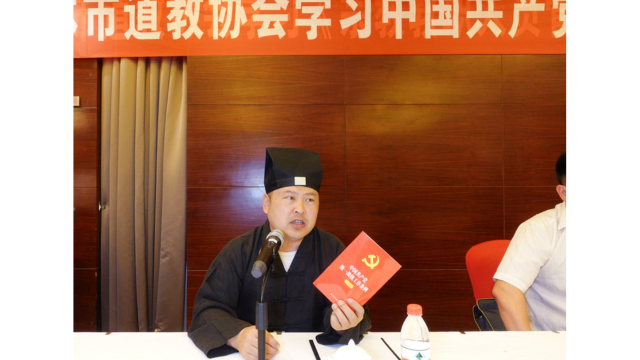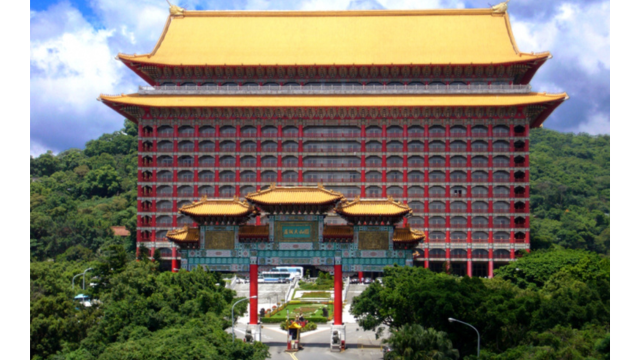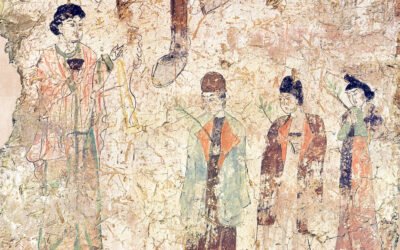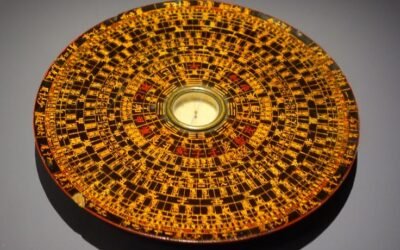Beijing’s efforts to infiltrate Taoism in Taiwan continue. However, Taiwanese see China and the CCP with growing mistrust.
by Mattias Swenson Daly
Article 4 of 4. Read article 1, article 2, and article 3.
Note: “Bitter Winter” publishes, with the authorization of the author, excerpts from the new book “Infiltrating the Tao: China’s Influence Operations Targeting Quanzhen Taoist Communities in Taiwan and the West,” published by Religioscope, Fribourg (Switzerland), 2025.

Evidence exists suggesting that the UFWD may previously have intended to take a more hands-on approach to Quanzhen Taoism within Taiwan’s borders. On YouTube there is a nearly two-hour-long video with the grandiloquent title “The Magnificently Arranged Opening Ceremony for The Ninth ‘Both Sides of the Taiwan Strait Tao Culture Exchange Forum,’ Hosted by the Taiwan Province Taoist Association on 6 August 2017 at the Grand Hotel Taipei” (Taiwan Province Taoist Association 臺灣省道教, “臺灣省道教會主辦 第九屆 海峽兩岸道文化交流論壇 2017年8月6日在台北市圓山大飯店盛大舉行開幕典禮”, posted August 21, 2017, accessed February 7, 2025). This event, which had an audience of hundreds, was sponsored by the Taiwan Province Taoist Association (臺灣省道教會), an organization that includes members of several Quanzhen-adjacent Taoist temples (meaning that although they have clergy who formally joined Quanzhen lineages in China, the temples still remain primarily affiliated with other forms of Taoism or folk religion) as well as the Tzu-Hui Society (see Taiwan Province Taoist Association 臺灣省道教會, Facebook profile, accessed February 7, 2025. “Religioscope” attempted to contact this organization via Facebook direct message and email but received no response).
The ceremony was loaded with symbolism, beginning with the decision to hold it in the Grand Hotel Taipei. Established under Chiang Kai-shek’s direction in 1952, this hotel has hosted countless foreign heads of state including several US presidents, thereby becoming an icon of Taiwan’s engagement with international power brokers. The event was kicked off by the performance of a song entitled “The Two Sides of the Strait are a Single Family” performed by Peng Li (彭立), a Taiwanese singer who took her career to China in the 2010s. The song’s title and chorus are based verbatim on the name of a United Front propaganda campaign with a high enough profile that Taiwan’s Ministry of Justice Investigation Bureau hosts a paper about it on their website (Liu, Wen-Bin 劉文斌 and Tang, Yung-Jui 唐永瑞, “The Effect of Mainland China’s United Front Propaganda ‘Both Sides as a Family’” [大陸對臺「兩岸一家親」 統戰作為效應], “Prospect & Exploration” [展望與探索] 13, no. 10 [2015]: 75–940).
Keynote speeches were delivered by local Taoist figures; three Kuomintang (KMT) politicians (Wang Jin-pyng 王金平, a member of Taiwan’s Legislative Yuan until 2016, Tseng Yung-chuan 曾永權, Secretary-General of the KMT until 2014, and Lin Join-sane 林中森, chairman of the Straits Exchange Foundation, the Taiwanese government’s de facto representative office in China, until 2016); Zhang Jintao (張金濤), then head of the Jiangxi Province Taoism Association in China, who can be seen being escorted to the stage by bodyguards at minute 00:22:00 in the video; and Zhang Fuqing (張福慶), then the acting vice mayor of the Yingtan municipality in China’s Jiangxi province, where Dragon Tiger Mountain, an important Taoist religious and administrative center, is located.
The presence of a Chinese politician and the head of a provincial branch of the Chinese Taoist Association at the 2017 event are not the only signs of a high level of United Front Work Department engagement—more importantly, this annual series of meetings has bounced back and forth between locales in Taiwan and southern China since its inception, marking it as a part of the Chinese government’s long-term influence strategy. But what is equally notable is how only one post-2017 “Both Sides of the Taiwan Strait Tao Culture Exchange Forum—the comparatively muted 2019 gathering—was held in Taiwan.” According to PRC media, the November 2020 forum was originally scheduled to be held in Taipei, but was compelled to become a videoconference based in Jiangxi province because Taiwan’s Republic of China Mainland Affairs Council (中華民國大陸委員會) declared that the forum was a United Front activity and blocked it from going forward (Strait Herald Agency 海峡导报社, “The Both Sides of the Taiwan Strait Tao Culture Exchange Forum Nearly Cancelled Due to United Front Accusations, Taoist Figures Angrily Criticize Authorities in the Democratic Progressive Party for Suppression” ([两岸道文化论坛遭控统战差点办不成,道教人士怒批民进党当局打压], SOHU.com, published November 20, 2020, accessed February 7, 2025).
Indeed, in September 2020 the Mainland Affairs Council formally declared that all “Both Sides of the Taiwan Strait Fora” are “large-scale platforms for the United Front orchestrated by the Chinese Communist Party, which has for years used them both to offer enticements and sow seeds of division in Taiwan in pursuit of its ‘One China’ political ambitions. It also uses these fora to issue propaganda about the fruits of United Front work and to criticize and harm Taiwanese society” (Mainland Affairs Council [of the] Republic of China [Taiwan] 中華民國大陸委員會, “Explainer on the Chinese Communist Party’s ‘Both Sides of the Taiwan Strait Fora’ Policies” [對中共舉辦「海峽論壇」之政策說明], published September 3, 2020, accessed February 7, 2025).

That post-2019 installments of these fora have all taken place in China indicates a setback for the UFWD’s involvement in the Taiwanese Taoist community, but the prohibition of these activities on Taiwanese soil under back-to-back Democratic Progressive Party (DPP) administrations could be rescinded should China-friendly political forces return to power in Taipei. Nevertheless, it is unclear whether or not the United Front and its Taiwanese fellow travelers would attempt to replicate the 2017 forum’s ostentatiousness. The intervening years have seen Taiwanese citizenry’s credulity regarding PRC promises of a “one country, two systems” approach to governing them be shattered by the crushing of democracy and civil society in nearby Hong Kong. The Chinese government’s obfuscations surrounding COVID’s origins and the deleterious effects of its harsh zero-COVID policies are well known in Taiwan, and as China’s economic engine sputters the idea that annexation would create an economic miracle for Taiwanese people loses its persuasiveness. At the same time, China has steadily turned up the pressure its air force, navy, and maritime militia place on Taiwan, and homegrown organizations such as the Forward Alliance and Kuma Academy (founded in 2020 and 2021, respectively) have emerged to increase awareness about the threat of an attack on Taiwan and to train civilians in wartime disaster response.
Indicative of how charged of an issue Chinese influence operations have become, a YouTuber and a rapper’s forty-minute video about United Front efforts to compromise Taiwanese musicians was viewed more than 3 million times within a month of its release in December 2024 (Fun TV 攝徒日記, “China’s United Front Exposed: Officials’ Leaked Calls and Tactics to Buy Off Taiwanese Influencers” [中國統戰紀錄片(上):「首位跳反藝人」揭穿中共收買台灣網紅套路], posted December 6, 2024, accessed February 7, 2025.) All of this is to say that perceptions of the Chinese government have changed dramatically in Taiwan since 2017. In future, were another PRC politician invited to address a crowd of Taoists at the Grand Hotel Taipei, the optics would be very different.

Mattias Swenson Daly is a Kiwi-American researcher, translator, and writer based in Taiwan. His writings and translations span religious, historical, political, and arts topics. One of his translations, Taoist Inner Alchemy: Master Huang Yuanji’s Guide to the Way of Meditation, was published in 2024 through Shambhala Publications. In 2023 he published Ungrounded Certainty: The Methods, Texts, and False History of Sexual Inner Alchemy in the Scholarly Imagination (無中生有:學界想象中的陰陽丹法文本與虛構的歷史), an original monograph written in Chinese, through Shin Wen Feng Printing Company. Prior to living in Taiwan, he spent a decade in China.



